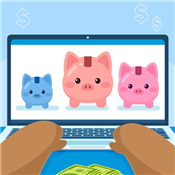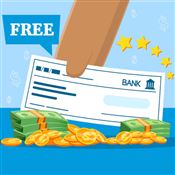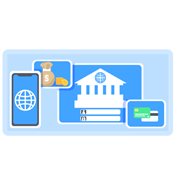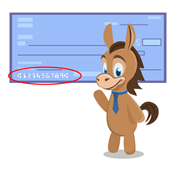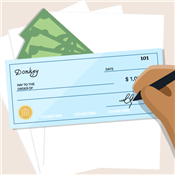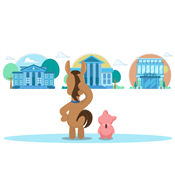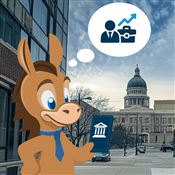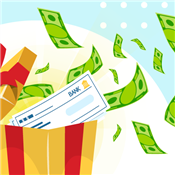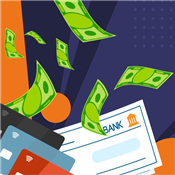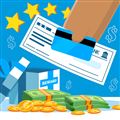Bank Account Number
What is a bank account number? Learn how to find your bank account numbers online. Plus, check out how to keep your account safe.
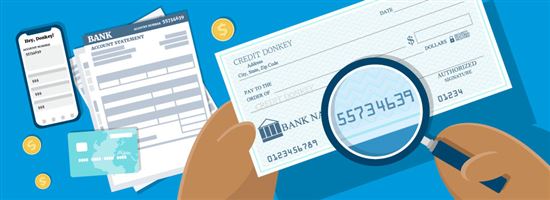 |
Need to pay bills online? Or set up direct deposit? You're going to need your bank account number.
Your account number is the key to pretty much any bank transaction you need to make.
Below, see how to find your bank account number. Plus, see the difference between an account number and a routing number.
What is a Bank Account Number?
Your account number is a set of digits assigned by your bank to identify your personal account. Each unique account is associated with a different bank account number. Account numbers are usually between 9 and 12 digits long.
If you have a checking account and a savings account, for example, each account will have its own number. The account numbers are different even if the accounts are with the same bank.
Are Account Numbers Unique?
Account numbers are the fingerprint of your account. Therefore, they are unique. It's associated with:
- The account holder's name
- Email address
- Phone number
- Physical address
- Account balance
Every account you have will have a different account number.
How to Find Your Bank Account Number
Your account number can be found in many different places. Here's how to quickly find your bank account number:
Paper Check
If your bank account comes with physical checks, you can easily find your account number. The series of numbers at the bottom of the check are your bank account number and your routing number.
The first 9 digits at the bottom left of your check are your routing number. The second set of digits will be your account number. Finally, the last few digits are just the check number.
Bank Statement
Your bank statement should have your full bank account number visible near the top of the page. If you don't receive paper statements, you can find your electronic statements by signing into your bank app or website.
Online
When you log in to your account, you might be able to see your full account number. But this is dependent on the bank. Some banks only show you the last four digits of your account number for security reasons.
Contact Your Bank
If you can't find your account number through any of the previous methods, you can call or visit the bank. You will need to confirm your identity before the bank gives out your account number.
You might need to provide information like your Social Security number or driver's license as proof.
Routing Number vs. Account Number vs. SWIFT Code
You can find both your routing number and account number on a check. But each number serves different purposes.
An account number identifies your specific bank account. Routing numbers, on the other hand, help financial institutions identify each other. Each bank has its own set of routing numbers, and each routing number is 9 digits long.
Some banks have separate routing numbers for each state. For example, Chase has one California routing number. All Chase customers in California use that same number.
You may need your routing number to do the following:
- Send money between different banks
- Set up direct deposit
- Pay bills
- Wire transfers
A SWIFT code, also known as a BIC number, is used to identify banks when you're dealing with international transfers. Each bank has its own 11-digit SWIFT code. The code provides information about the bank, country, and specific location.
What is an International Bank Account Number?
An international bank account number, or IBAN, identifies a foreign bank account. The number is up to 34 characters long.
The IBAN functions in the same way as a regular account number. It gives information about your specific account, bank, and country. Compare this to a SWIFT code, which identifies a bank but not the account details.
How to Keep Your Bank Account Number Safe
Your bank account number is sensitive information that should be kept private. The last thing you want is for your financial information to get into the wrong hands.
Here are a few ways to keep your bank account number safe:
Memorize Your Account Number
Try to avoid writing down your account number if possible. Just because something is written down doesn't mean it's private, so it's best to memorize your bank account number for maximum security.
Don't Share Your Information
Keep your banking information to yourself as much as possible. Avoid sending your bank account number to others, especially through text and email.
Be Careful on Public Wi-Fi
It's best to avoid signing into sensitive accounts when you use public Wi-Fi. Public Wi-Fi networks aren't secure and are vulnerable to cyberattacks.[1]
Destroy Checks Before Throwing Away
If you need to get rid of a voided check, be sure to shred or destroy it before you throw it away. Otherwise, someone could easily find your account number on the check.
Account Number Vulnerability
Account numbers are vulnerable to identity theft and fraud. Especially with online banking, hackers are more likely to get their hands on your info. Because of this, banks will usually have multi-factor authentication systems. They are put in place to protect you from hackers.
These systems are the reason why you often have to answer annoying questions to get to your account. But, multi-factor authentication can be many things, such as:
- Fingerprint activation
- Voice activation
- Time-sensitive codes
Bottom Line
If you need to set up direct deposit, pay bills, make a wire transfer, or link your bank account to an online budgeting tool or money management app, you're going to need your bank account numbers.
The best way to keep these important numbers safe is to memorize them. But if you're not able to, you have a lot of options for locating your account number. You can easily find your bank account number on a check or through a bank statement.
Looking to open a new bank account? Check out the best current bank promotions here.
References
- ^ Norton. Public Wi-Fi security: Why public Wi-Fi is vulnerable to attack, Retrieved 4/17/2022
Donna Tang is a content associate at CreditDonkey, a bank comparison and reviews website. Write to Donna Tang at donna.tang@creditdonkey.com. Follow us on Twitter and Facebook for our latest posts.
Note: This website is made possible through financial relationships with some of the products and services mentioned on this site. We may receive compensation if you shop through links in our content. You do not have to use our links, but you help support CreditDonkey if you do.
|
|
| ||||||
|
|
|
